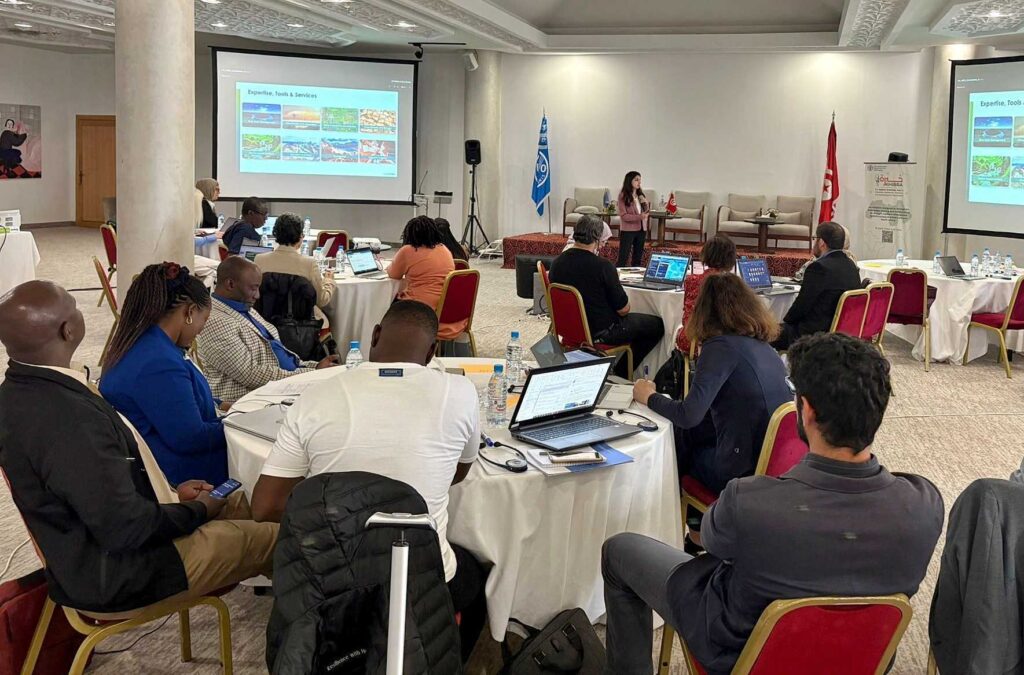FutureWater, together with FAO’s regional office for the Middle East and North Africa, presented the blueprint of a new decision support tool at the FAO inter-regional workshop on “Integrated approaches and evidence-based good practices in sustainable land management to promote integration of the WEFE nexus”. The tool is designed to use water accounting data to assess and balance sectoral use and resource demand within the water-energy-food-ecosystem (WEFE) nexus.
The workshop, organised by FAO’s Interregional Technical Platform on Water Scarcity (iRTP), was attended by experts from MENA and sub-Saharan Africa, including Yemen, Malawi, Egypt, Jordan, Algeria, Morocco, Tunisia, Botswana, Zimbabwe and Tanzania. This diverse meeting created a valuable space for cross-regional exchange on best practices in sustainable land and water management.
FutureWater’s presentation highlighted how the tool, currently under development, aims to support evidence-based planning and resource allocation in competing sectors. The new initiative builds on previous work under FAO’s Asia-Pacific Water Scarcity Programme and brings forward a systems approach to integrated resource management.
It was particularly encouraging to receive strong interest from several countries to test the tool, reinforcing the urgent need for scalable, data-driven solutions that can support sustainable development in water-scarce regions.
FutureWater is proud to contribute to promoting integrated approaches to land and water management and looks forward to the next stages of development and pilot testing.





